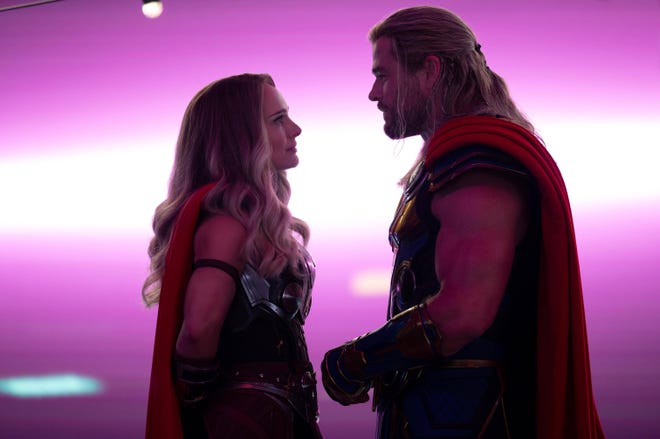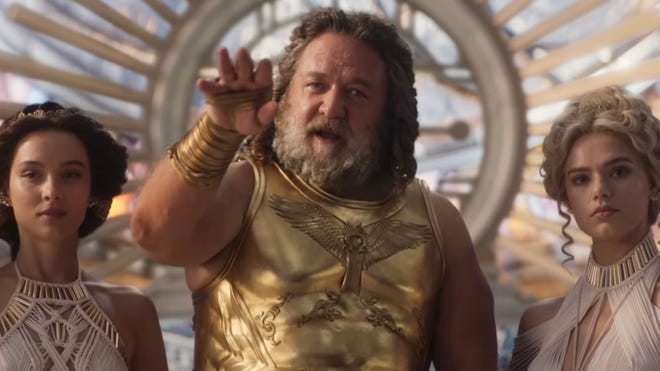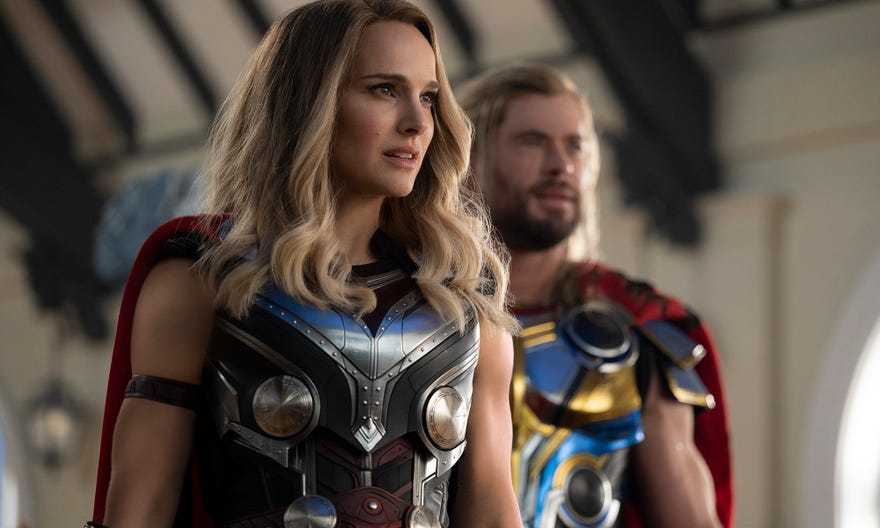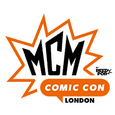Thor: Love and Thunder ending explained
What actually happened at the end of Thor: Love and Thunder
Thor: Love and Thunder is out now, with Natalie Portman's Jane Foster finally picking up the mighty Mjolnir to become the even more Mighty Thor. Yes, Chris Hemsworth's Thor is in the movie too… as is Tessa Thompson's Valkyrie, Taika Waititi's Korg, and couple other surprising familiar faces as well as new ones.
Love and Thunder's ending had quite a few endings (and maybe even some beginnings), so we have written up the final scenes of Thor: Love and Thunder, along with some context for what it all means (or could mean) both within the movie and in the greater MCU. Whether you've already watched Love and Thunder and lost track or you're searching out some spoilers before making the trip to the movie theater, here's the ending of Thor: Love and Thunder, explained.
Thor: Love and Thunder plot breakdown
Thor: Love and Thunder has a lot going on in terms of plot. First and foremost, we have Gorr, who is trying to kill all the gods in revenge for a god's callous behavior which led to the death of his people and his beloved daughter. At first, it seems like Gorr tries to accomplish this goal by killing the gods off one-by-one with the Necrosword, but we learn later that he is attempting to get to a place called Eternity's Gate, where he can wish for all the gods to die, and have Eternity, a cosmic entity, grant it.
On the hero side, we also have Thor searching for a purpose in life, Jane Foster dealing with stage four cancer, Jane Foster becoming the mighty Thor, and Jane and Thor possibly rekindling their romance.

These stories intersect when Gorr kidnaps the children of New Asgard, and Jane, Thor, Valkyrie, and Korg set out to retrieve them. What the heroes don't know is that Gorr is using the children to lure Thor, and more importantly Thor's new axe Stormbreaker, into the shadow realm. Stormbreaker (as we're reminded early on in the film) has the capabilities to allow people to travel on the Bifrost—and Gorr needs it to get to Eternity's Gate.
And… the trap works. At the end of the movie, Gorr has successfully used Stormbreaker to get to Eternity's Gate. In this other realm, (which has some visual similarities to the Soul Stone realm that Thanos found himself in, like water-covered ground that looks like it spans for miles), he comes across a large being that is an embodiment of the entire universe—Eternity.
Thor: Love and Thunder ending
Alongside Gorr, Thor and a now quite sick Jane (who sacrificed her chance at healing to save Thor) have crossed over into this realm too. Thor and Gorr argue for a while, but then Thor turns away, back to Jane, who is very clearly living out her last few moments of life. Gorr shouts at Thor, asking why he dares turn his back on Gorr, and Thor replies that he would rather spend his last few moments (presuming Gorr is about to kill every god) with Jane, who spends her last moments in Thor's arms.
Thor tells Gorr that Gorr doesn't need revenge, he needs love. Now, this may sound a little hokey, but the movie has really built to this moment, when Gorr realizes that he doesn't have to use his wish to kill all gods, but that he can use it to save his daughter.
But, since Thor and Mighty Thor have shattered his Necrosword, which leaches all of Gorr's power away (he's dying), who will take care of his daughter? Well, Thor, of course. He's been looking for purpose in his life, after all.
Gorr decides, at the end, to turn away from getting revenge and brings his daughter back instead. After a tender moment with his daughter, he soon dies, but not before getting Thor to promise to take care of his child.
The movie makes a small jump into the future through some helpful Korg narration, and we see a snippet of Thor being a dad to this little girl (who happens to be played by Hemsworth's daughter India Rose), setting out for a battle and fighting as a team to defend those who need defending. In the final moments of the film, we find out that Thor and his daughter are known as Love and Thunder (which Hemsworth hinted at when he announced that his daughter was going to be in the film).
What about the Thor: Love and Thunder mid-credits scene?
In the mid-credits scene, we see Jane Foster appearing in a mysterious realm. She's not wearing the clothes she died in, and she's styled to look more like an Asgardian than a human. As Jane gets her bearings, she notices Idris Elba's Heimdall, who welcomes her to Valhalla, a place for god warriors who have died in battle.
What about the Thor: Love and Thunder post-credits scene?

Surprise! Zeus, who Thor had thought he killed, is not actually dead! And he's out for revenge. Zeus is obviously not going to go after Thor himself (he's made it quite clear that he doesn't really get his hands dirty). Instead, he's going to recruit a god to do this dirty work of killing Thor Odinson. And who is he going to recruit? Why Hercules of course— played by Ted Lasso's Brett Goldstein.
What does Thor: Love and Thunder mean for the MCU?
Thor: Love and Thunder has a standalone feel, and while there is a card at the end of the film that promises that "Thor Will Return," we have no details as to how or when. Just speculating from the tone of finality at the end of the film, it feels unlikely that there will be a fifth Thor movie, so perhaps Thor will make a supporting character appearance in another upcoming MCU project.
We do know that Hercules is now in the MCU and is out for Thor's blood, so wherever Thor does show up, there's already an antagonist set up to be waiting for him.
Beyond the introduction of Hercules, most of what happens in Thor: Love and Thunder feels fairly self-contained, except for the loose threads and lack of ending for Valkyrie. Hopefully, this means that we'll see more of her in another project soon that will give her a chance to develop a little more and finish her story with panache.
Check out Popverse's review of Thor: Love and Thunder.



_md97fnd.jpg?width=115&height=115&fit=bounds&quality=80&format=png&auto=webp)



